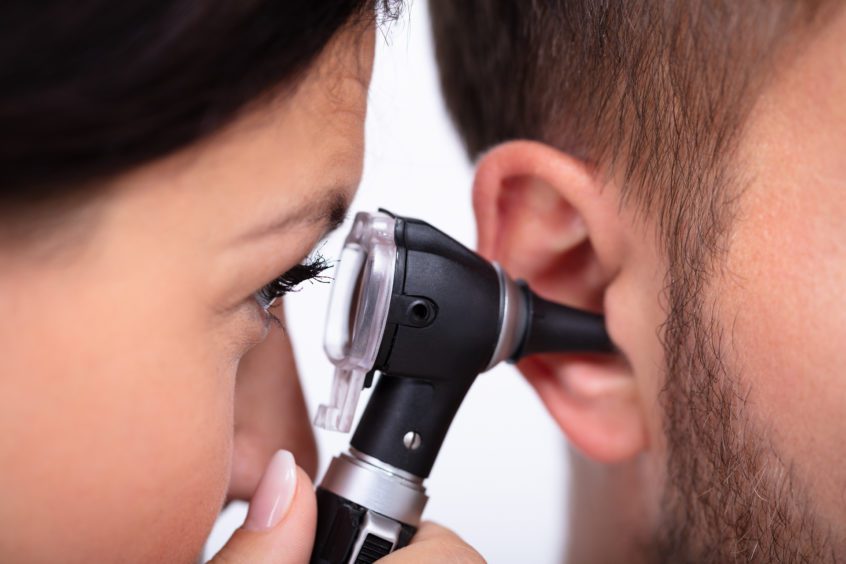If you think you might have a hearing loss, there are lots of ways to find out—from online hearing screenings to free in-person screenings to hearing checks at work. All of these screenings can give you an indication of whether you have a hearing loss, but their limitation is that they are only screenings. They aren’t comprehensive hearing evaluations, and they can’t tell you exactly what your hearing loss is; and if you have a hearing loss, they don’t tell provide the exact prescription to treat it.
However, audiologists, who are doctoral-level professionals, can. Audiologists are best equipped to diagnose and treat hearing loss. October is Audiology Awareness Month, and a great time to learn more about what these professionals do and why they can be so important to how well you hear the sounds around you.
Doctoral-level Professionals
An audiologist has earned an Au.D. (Doctorate in Audiology), or a Ph.D. doctoral degree from an accredited university graduate program.
As part of their four-year doctoral training, audiologists spend a final year completing an externship experience supervised by a licensed audiologist. The externship provides practical, hands-on, advanced experience.
Following graduation from an accredited program, audiologists can diagnose, manage and treat hearing or balance problems for individuals from birth through adulthood including:
- Test hearing and balance.
- Recommend, service, and adjust hearing aids.
- Recommend and provide assistive listening devices (products to enhance telephone conversations, television viewing, etc.).
- Provide tinnitus assessment and management.
- Provide education regarding the effects of noise on hearing and prevention of hearing loss.
- Deliver counseling and aural rehabilitation (counseling, education, auditory training/exercises).
- Audiologists can make medical referrals to a physician when appropriate for issues such as ear pain, drainage from the ear, sudden hearing loss, cochlear implantation, etc.
Examination
When an audiologist examines your outer ear with an otoscope or video otoscope, they can observe any damage caused by the use of cotton applicators (“Q-tips”), trauma, or chronic infection. An audiologist can also observe the condition of the ear drum and determine whether the ear canal may have a buildup of earwax causing a hearing loss.
After considering a patient’s health history and performing a visual inspection of the outer ear, the audiologist will perform an audiological evaluation composed of a series of tests. These tests may include but are not limited to:
- Tympanometry to assess the status of the middle ear.
- Pure tone thresholds by air conduction and often by bone conduction to determine the degree and type of hearing loss.
- Tests of speech threshold and speech recognition to assess comprehension of complex signals.
- Special tests of auditory function, such as otoacoustic emissions, brainstem auditory evoked response (BAER), or balance testing.
Typically, a comprehensive audiology examination such as this takes 60 to 90 minutes, while a screening may only take a few minutes and doesn’t provide enough detail to prescribe hearing aids or provide medical referral recommendations.
Experts in Technology
In addition to testing, one of an audiologist’s most important roles today is as an expert in the hearing aid technology now available for patients. Audiologists are constantly learning about the features of this new technology, who it’s best suited for, and how to properly program it for the patient’s specific needs and maximum benefit. In addition, the audiologist should be able to help and teach patients about the features of their new hearing aids. With several major manufacturers and a range of styles and types of hearing aids, an audiologist’s guidance can be a key component of a patient’s satisfaction with their hearing aids.
Associated Audiologists has reviews from more than 700 satisfied patients who have ranked the care they have received as five stars. Read our reviews.
If you think you have a hearing loss, see a doctoral-level audiologist who can properly evaluate your hearing and make appropriate recommendations.



